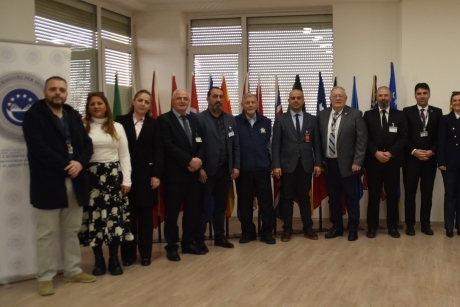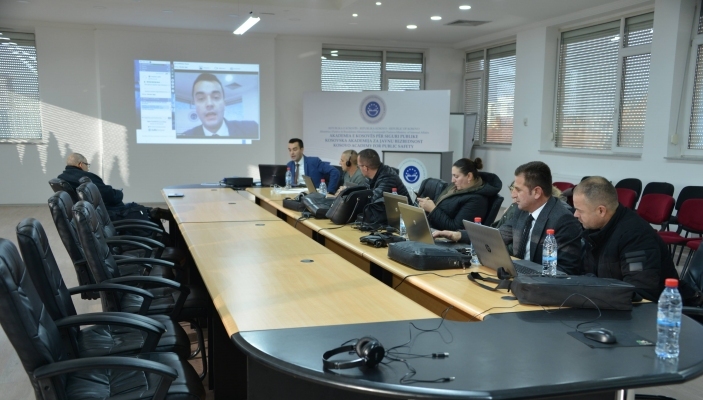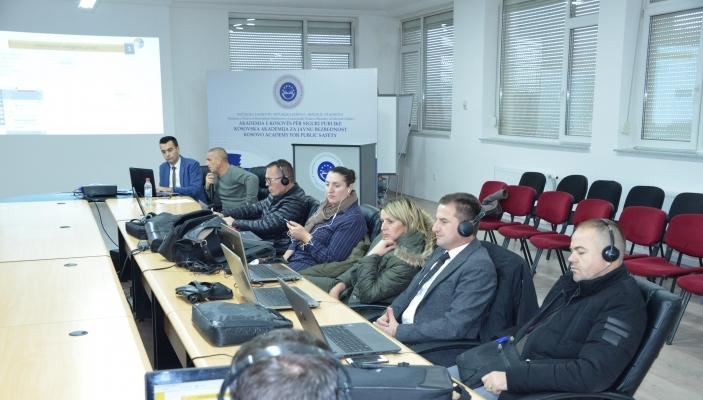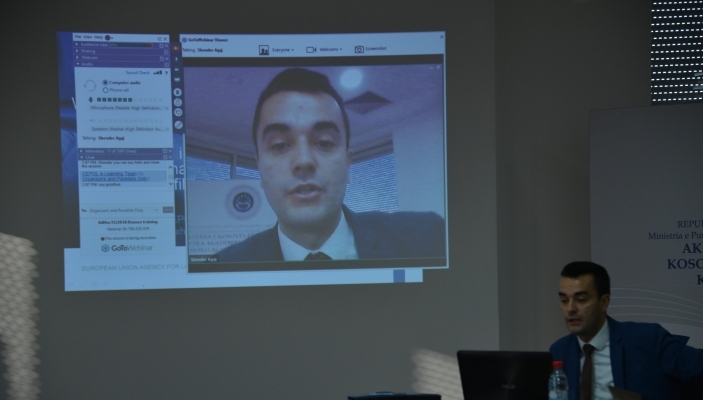Në AKSP u mbajt webinar i CEPOL
Vushtrri, 30 November 2018.- Today, at the premises of Kosovo Academy for Public Safety, for the first time was held a webinar of the European Union Agency for the Training of Law Enforcement (CEPOL) for law enforcement officers of Kosovo.
European Union Agency for Training in Law Enforcement (CEPOL) and the United Nations Office on Drugs and Crime (UNODC) launched the project for financial crimes in the Western Balkans (WBFI), under which organize national and regional courses, participation in the CEPOL Exchange Program between law enforcement officials from the European Union and the Western Balkans as well as other support activities.
As part of this project was the training "Financial Investigations Relating to Narcotics Trafficking", which was held in Pristina from 8 to 12 October 2018, attended by 29 officials of 7 Kosovo law enforcement institutions , such as: Kosovo Police, Kosovo Customs, Financial Intelligence Unit, Kosovo Tax Administration, Prosecution Office, Judiciary and Kosovo Academy for Public Safety.
The purpose of this webinar was to remind you and evaluate the content of the training as above, to discuss the topics presented in training in real-time with all three experts who held the training and at the same time use this opportunity to promote the use of the electronic network (e-Net), namely the Learning Management System, which can be used, e.g., to start a group of discussions in the forum.
Kosovo Academy for Public Safety in this way supports and promotes electronic learning in one of the most popular platforms and more important in the field of law enforcement in Europe, such as the CEPOL. This will in fact be one of the strategic objectives of the Academy for the future.
KAPS on 24 March 2017 has signed a Work Agreement with CEPOL and as a result of this agreement it has managed to include Kosovo law enforcement officials in various CEPOL trainings in Kosovo and abroad, in the Exchange Program as well and many of them are involved and effectively use the Learning Management System (LMS), participating in webinars, online courses, using electronic library, etc.







